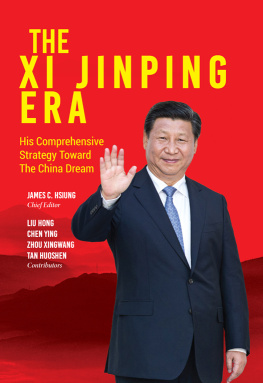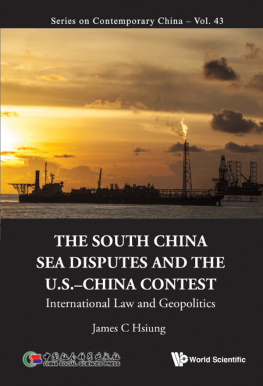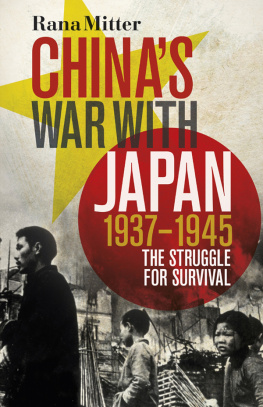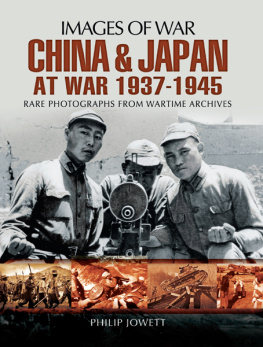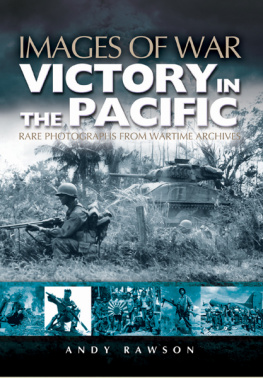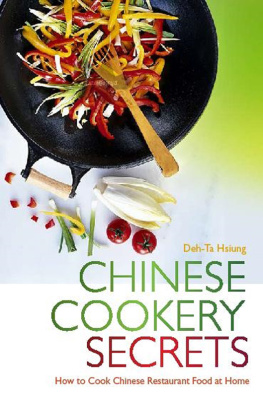An East Gate Book
First published 1992 by M.E. Sharpe
Published 2015 by Routledge
2 Park Square, Milton Park, Abingdon, Oxon OX14 4RN
711 Third Avenue, New York, NY 10017, USA
Routledge is an imprint of the Taylor & Francis Group, an informa business
Copyright 1992 Taylor & Francis. All rights reserved.
No part of this book may be reprinted or reproduced or utilised in any form or by any electronic, mechanical, or other means, now known or hereafter invented, including photocopying and recording, or in any information storage or retrieval system, without permission in writing from the publishers.
Notices
No responsibility is assumed by the publisher for any injury and/or damage to persons or property as a matter of products liability, negligence or otherwise, or from any use of operation of any methods, products, instructions or ideas contained in the material herein.
Practitioners and researchers must always rely on their own experience and knowledge in evaluating and using any information, methods, compounds, or experiments described herein. In using such information or methods they should be mindful of their own safety and the safety of others, including parties for whom they have a professional responsibility.
Product or corporate names may be trademarks or registered trademarks, and are used only for identification and explanation without intent to infringe.
Library of Congress Cataloging-in-Publication Data
Chinas bitter victory: the war with Japan, 19371945 / [edited] by James C. Hsiung & Steven I. Levine
p. cm. (Studies on modern China)
Includes bibliographical references and index.
ISBN 0-87332-708-X(cloth) ISBN 1-56324-246-X (pbk.)
1. Sino-Japanese Conflict, 19371945. I. Hsiung, James Chieh,
1935 . II. Levine, Steven I. III. Series.
DS777.53.C5251991
940.53dc20
91-6961
CIP
ISBN 13: 9781563242465 (pbk)
ISBN 13: 9780873327084 (hbk)
James C. Hsiung
MORE THAN forty-five years have passed since the guns fell silent, signaling the end of the bloody Sino-Japanese War of 193745. During those eight terrible years, the Chinese people endured what was probably the most brutal war ever fought in the Pacific region, but the story of how they survived has not yet been fully told. Meanwhile, of course, much has been written about the experience of other countries and peoples during World War II. The gap relating to China in the literature of World War II is extremely unfortunate, to say the least.
The attitudes of the principal Chinese parties in this tragic conflict obviously have had a great deal to do with the perpetuation of this lacuna. Due to their long-standing mutual enmity, neither the Kuomintang authorities in Taipei nor the Chinese Communist rulers in Peking can agree on who should get credit for the victory that finally came in 1945.1 Neither party has yet provided very much detailed and comprehensive information in a form that presents a composite picture of Chinas eight-year War of Resistance. Instead, there have been piecemeal releases of information about particular military campaigns and the publication of memoirs by a few remaining veteran military leaders.
In contrast, voluminous accounts have appeared in Japan of the glorious exploits of the Imperial Army during the Pacific War. The Japanese, however, have no compelling reasons to tell the whole truth about an event that many among them now much prefer to gloss over or forget. In its controversial textbook revisions of the 1980s, Tokyo sought to play down the aggressive war launched by the Japanese militarists of the 1930s as a mere forward advance in China.2 In early 1988, a member of the Japanese cabinet unabashedly proclaimed that the Japanese invasion of China five decades earlier was not an act of aggression. Although he subsequently resigned under fire from the opposition, he was forced to do so for his undiplomatic behavior rather than for his historical inaccuracy.3 Indeed, in that episode, a group of forty-one politicians in the ruling Liberal Democratic party rushed to his defense, and a significant number of Japanese were also reported to agree with him.4 It is an indisputable fact that more innocent Chinese were massacred by Japanese soldiers in the December 1937 Rape of Nanking than Japanese were killed by the atomic bomb dropped on Hiroshima in 1945, yet present-day Japanese youths are asking whether Nanking was really raped.5
It is not surprising that historians, lacking uninhibited access to archives that the principal parties still jealously guard from impartial scrutiny, have not yet been able to produce authoritative assessments of the Sino-Japanese War. In undertaking this book, our collective purpose has been the modest objective of making a start at reviewing the tragedy of the Sino-Japanese War within its overall historical context. For that purpose, the co-editors assembled a team of scholars, all of whom are well-established authorities in their fields. Each of these scholars enjoys a well-deserved reputation for independent and unbiased work. Together they address a cross-section of important topics relating to wartime China during 193745.
What we have produced is not a rehashed short history of the war that merely chronicles the military conflict.6 Rather, ours is a book about China itselfthe political, diplomatic, military, economic, and cultural dimensions of an eight-year struggle that China did not seek in the first place and that it was initially not prepared to fight. While other accounts cover only certain aspects of the war, such as military battles or the human suffering, our volume takes a holistic approach to the question of how the country responded to the impact of war. Other books focus only on certain subperiods, but ours covers the war in its entirety. As such, to the best of our knowledge, there is no other volume like ours.
A bit of the inside history of this project may be in order. At the outset of our endeavor, in my capacity as co-editor, I negotiated in earnest with authorities in Taipei to secure unprecedented access for the books contributors to the archives in the holdings of the Kuomintang Party History Commission (Tang Shih Hui), the governments National Archives Agency (Kuo Shih Kuan) and the Military History Bureau (Shih Cheng Chu) of the Ministry of National Defense. After initial approval had been granted, one of the principal negotiators in Taipei, who happened to be the key gatekeeper to the archives, unexpectedly took objection to the makeup of our team of scholars. In particular, he demanded the removal of two contributors who, in his opinion, were too uncontrollable (meaning not pro-KMT). We categorically rejected this unacceptable demand, preferring to sacrifice the privilege of archival access rather than to compromise the academic independence and integrity of our team. This stance eventually cost us our privilege of access to the Taiwan archives. Our co-authors, therefore, had to resort largely to their personal research files and to sources available in the West, plus additional archival materials in the PRC made available, on a case-by-case basis, through the Chinese Academy of Social Sciences (CASS) in Peking, under a special agreement negotiated on behalf of the project.






